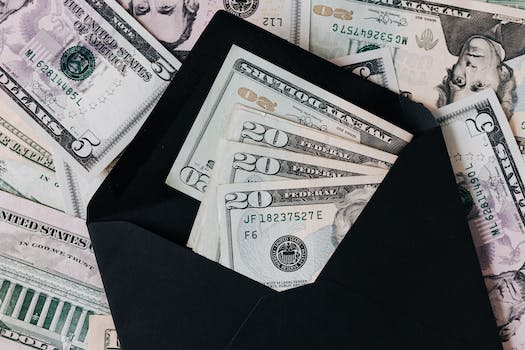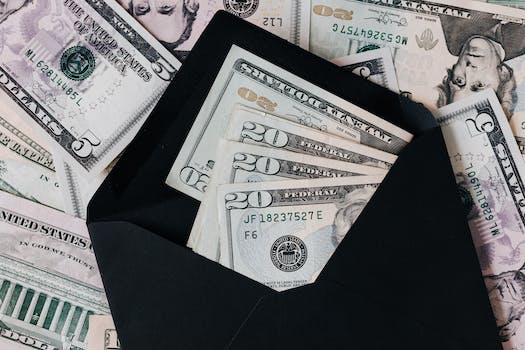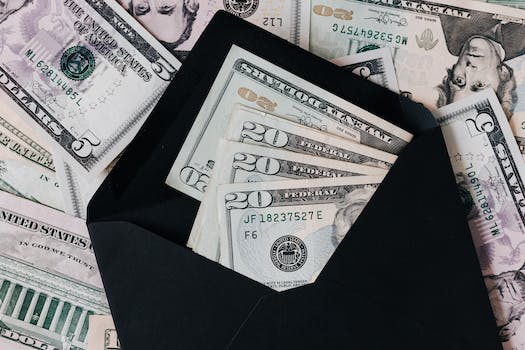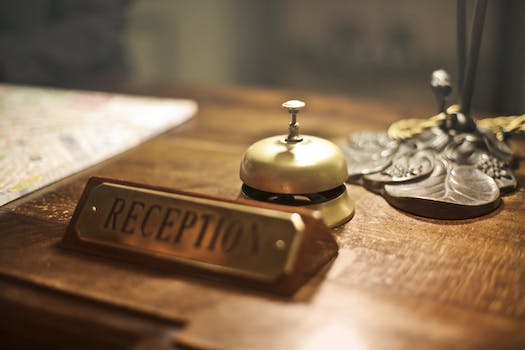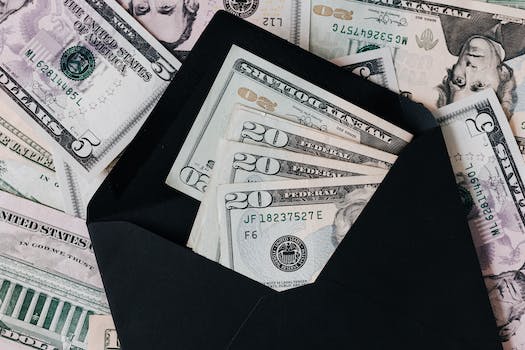How To Save Money Before Baby Arrives
“Preparing for parenthood doesn’t have to break the bank – here’s how to save money before baby arrives.”
Introduction
Saving money before a baby arrives is crucial for new parents. The cost of raising a child can be overwhelming, and it’s important to prepare financially for the new addition to the family. In this article, we will discuss some tips on how to save money before the baby arrives.
Creating a Budget Plan for Baby Expenses
Congratulations on your upcoming bundle of joy! As you prepare for the arrival of your little one, it’s important to start thinking about your finances. Raising a child can be expensive, but with some careful planning and budgeting, you can save money and ensure that you’re financially prepared for your new addition. Here are some tips on how to create a budget plan for baby expenses.
First, take a look at your current expenses and income. This will give you a good idea of how much money you have coming in and going out each month. Make a list of all your monthly bills, including rent or mortgage, utilities, car payments, insurance, and any other expenses you have. Then, subtract your total expenses from your income to see how much money you have left over each month.
Next, think about the additional expenses that come with having a baby. These can include diapers, formula or breastfeeding supplies, clothing, furniture, and medical expenses. Do some research to get an idea of how much these items typically cost. You can also ask friends or family members who have recently had a baby for advice on what they spent.
Once you have a good idea of your current expenses and the additional expenses that come with having a baby, it’s time to create a budget plan. Start by setting a goal for how much you want to save each month. This will help you stay on track and ensure that you’re putting money aside for your baby’s needs.
Next, prioritize your expenses. Make a list of the most important items, such as rent or mortgage, utilities, and food. Then, allocate a certain amount of money to each item based on its importance. For example, you may want to allocate more money to diapers and formula than to baby clothes, since these items are essential.
Be sure to also factor in unexpected expenses. Babies can be unpredictable, and you never know when you may need to make an unexpected trip to the doctor or buy a new piece of furniture. It’s a good idea to set aside some money each month for these types of expenses.
Finally, look for ways to save money on baby expenses. Consider buying items secondhand or borrowing from friends or family members. You can also look for deals and discounts on baby items, such as buying in bulk or using coupons. Don’t be afraid to ask for help or advice from other parents, as they may have some great tips on how to save money.
Creating a budget plan for baby expenses may seem overwhelming at first, but with some careful planning and budgeting, you can save money and ensure that you’re financially prepared for your new addition. Remember to prioritize your expenses, factor in unexpected expenses, and look for ways to save money. With a little bit of effort, you can create a budget plan that works for you and your growing family. Good luck!
Finding Affordable Baby Gear and Supplies
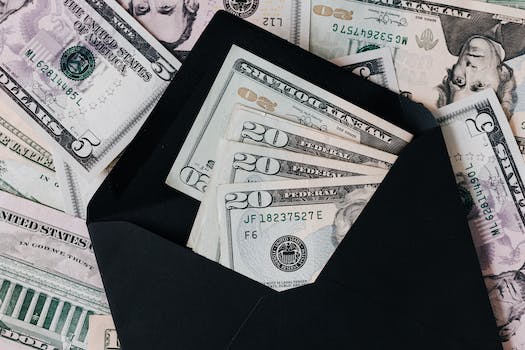
Are you expecting a baby soon? Congratulations! As you prepare for your little one’s arrival, you may be feeling overwhelmed by the cost of baby gear and supplies. But don’t worry, there are plenty of ways to save money before baby arrives. In this article, we’ll explore some tips for finding affordable baby gear and supplies.
First and foremost, consider buying used items. Babies grow quickly, so many parents are eager to sell their gently used baby gear and supplies. Check out local consignment shops, thrift stores, and online marketplaces like Facebook Marketplace or Craigslist. You can often find items like strollers, high chairs, and baby clothes in excellent condition for a fraction of the cost of buying new.
Another option is to borrow items from friends or family members. If you have friends or family members who have recently had a baby, they may be willing to lend you items like a crib, bassinet, or baby carrier. This can save you a lot of money, especially if you only need the item for a short period of time.
If you do decide to buy new items, be sure to shop around for the best deals. Check out big-box stores like Walmart or Target, as well as online retailers like Amazon. You may also want to sign up for email newsletters from baby gear retailers, as they often send out coupons and special offers to subscribers.
When shopping for baby gear and supplies, it’s important to prioritize your needs. While it may be tempting to buy every cute outfit or gadget you see, it’s important to focus on the essentials. Items like a car seat, diapers, and a safe place for baby to sleep are must-haves, while items like a wipe warmer or baby food maker may be nice-to-haves but not essential.
Consider buying items in bulk to save money. Diapers, wipes, and formula can be expensive, but buying in bulk can help you save money in the long run. Look for deals on bulk items at big-box stores or online retailers.
Finally, don’t be afraid to ask for help. If you’re struggling to afford baby gear and supplies, reach out to local organizations that provide assistance to families in need. You may be able to receive free or discounted items like diapers, formula, or clothing.
In conclusion, there are plenty of ways to save money before baby arrives. Consider buying used items, borrowing from friends or family, shopping around for the best deals, prioritizing your needs, buying in bulk, and asking for help if needed. With a little bit of planning and effort, you can prepare for your little one’s arrival without breaking the bank. Good luck!
Cutting Back on Non-Essential Expenses
Are you expecting a baby soon? Congratulations! Preparing for a new addition to your family can be an exciting time, but it can also be stressful, especially when it comes to finances. Babies come with a lot of expenses, from diapers to clothes to medical bills. However, there are ways to save money before your baby arrives, and one of the most effective ways is to cut back on non-essential expenses.
First, take a look at your monthly bills and see where you can make cuts. Do you have a gym membership that you rarely use? Cancel it. Do you subscribe to multiple streaming services? Consider cutting back to just one or two. These small changes can add up and save you a significant amount of money each month.
Next, take a look at your grocery budget. Are you buying expensive pre-packaged meals or eating out frequently? Consider cooking more meals at home and buying generic brands instead of name brands. You can also save money by planning your meals ahead of time and buying in bulk when possible.
Another way to cut back on non-essential expenses is to reduce your entertainment budget. Instead of going out to movies or concerts, consider having a movie night at home or hosting a game night with friends. You can also find free or low-cost activities in your community, such as visiting a local park or attending a community event.
If you have a lot of credit card debt, consider consolidating your debt or transferring your balance to a card with a lower interest rate. This can help you save money on interest payments and pay off your debt faster.
Finally, take a look at your transportation expenses. Do you have a car payment that is too high? Consider downsizing to a more affordable car or using public transportation instead. You can also save money on gas by carpooling or biking to work.
Cutting back on non-essential expenses can be challenging, but it is a great way to save money before your baby arrives. By making small changes to your budget, you can free up money for essential baby items, such as a crib, stroller, and car seat. You can also start building an emergency fund to prepare for unexpected expenses that may arise after your baby is born.
Remember, saving money doesn’t have to be a sacrifice. You can still enjoy life while cutting back on non-essential expenses. Look for free or low-cost activities in your community, cook meals at home with your partner or friends, and find creative ways to have fun without spending a lot of money.
In conclusion, preparing for a new baby can be expensive, but there are ways to save money before your baby arrives. Cutting back on non-essential expenses is one of the most effective ways to free up money for essential baby items and build an emergency fund. By making small changes to your budget, you can still enjoy life while preparing for the arrival of your little one.
Maximizing Savings through Coupons and Discounts
Are you expecting a baby soon? Congratulations! Preparing for a new addition to your family can be both exciting and overwhelming. One of the biggest concerns for new parents is the cost of raising a child. However, there are ways to save money before your baby arrives. One of the most effective ways is through coupons and discounts.
Coupons and discounts are a great way to save money on baby essentials such as diapers, wipes, formula, and baby food. Here are some tips on how to maximize your savings through coupons and discounts:
1. Sign up for loyalty programs
Many stores offer loyalty programs that provide discounts and coupons to members. Sign up for these programs at your favorite stores and start receiving discounts on baby essentials. Some stores even offer free samples and other perks to members.
2. Check store flyers
Check store flyers regularly for sales and discounts on baby items. Plan your shopping trips around these sales to save money. Some stores also offer price matching, so if you find a better deal at another store, bring the flyer to the store and they will match the price.
3. Use coupon apps
There are many coupon apps available that offer discounts on baby items. Some popular apps include Ibotta, Coupons.com, and RetailMeNot. These apps offer coupons and cashback on purchases. Simply download the app, select the coupons you want to use, and scan your receipt after your purchase to receive cashback.
4. Join online parenting groups
Join online parenting groups on social media platforms such as Facebook and Instagram. These groups often share coupons and discounts on baby items. You can also ask for advice and recommendations from other parents in the group.
5. Buy in bulk
Buying baby items in bulk can save you money in the long run. Look for bulk packages of diapers, wipes, and formula at stores such as Costco and Sam’s Club. These stores often offer discounts on bulk purchases.
6. Use manufacturer coupons
Many baby item manufacturers offer coupons on their websites or through their social media pages. Check these sources regularly for coupons on baby items. You can also sign up for their email newsletters to receive coupons and discounts directly to your inbox.
7. Shop at discount stores
Discount stores such as Walmart and Target offer lower prices on baby items than specialty stores. Check these stores regularly for sales and discounts on baby items.
In conclusion, coupons and discounts are a great way to save money on baby essentials. By signing up for loyalty programs, checking store flyers, using coupon apps, joining online parenting groups, buying in bulk, using manufacturer coupons, and shopping at discount stores, you can maximize your savings before your baby arrives. Remember, every little bit of savings helps when it comes to preparing for a new addition to your family.
Planning for Future Expenses and Emergencies
Congratulations on your pregnancy! As you prepare for the arrival of your little one, it’s important to start thinking about your finances. Babies can be expensive, and it’s crucial to plan ahead to ensure that you’re financially prepared for the new addition to your family. Here are some tips on how to save money before your baby arrives.
First and foremost, it’s important to create a budget. Take a look at your current expenses and income, and figure out how much you can realistically save each month. Make sure to include all of your expenses, including rent/mortgage, utilities, groceries, transportation, and any other bills you may have. Once you have a budget in place, you can start to look for areas where you can cut back on expenses.
One way to save money is to start buying items for your baby gradually. Don’t wait until the last minute to start shopping for baby gear, as this can be overwhelming and expensive. Instead, start buying items a few months before your due date. Look for deals and discounts on baby items, and consider buying gently used items from consignment shops or online marketplaces.
Another way to save money is to start building an emergency fund. Unexpected expenses can arise at any time, and it’s important to have a financial cushion in case of emergencies. Aim to save at least three to six months’ worth of living expenses in an emergency fund. This can help you avoid going into debt or relying on credit cards in case of unexpected expenses.
Consider setting up a separate savings account specifically for baby-related expenses. This can help you keep track of your savings and ensure that you’re putting aside enough money for your baby’s needs. You can also set up automatic transfers from your checking account to your baby savings account each month, which can help you save money without even thinking about it.
When it comes to planning for future expenses, it’s important to think about your long-term financial goals as well. Consider setting up a college savings account for your child, such as a 529 plan. This can help you save for your child’s education expenses over time, and may also provide tax benefits.
Finally, don’t forget to review your insurance coverage. Make sure that you have adequate health insurance coverage for yourself and your baby, and consider adding life insurance coverage as well. Life insurance can provide financial protection for your family in case of unexpected events, such as the death of a parent.
In conclusion, preparing for a new baby can be an exciting and overwhelming time. However, by taking the time to plan ahead and save money, you can ensure that you’re financially prepared for the new addition to your family. Remember to create a budget, start buying baby items gradually, build an emergency fund, set up a separate savings account for baby-related expenses, plan for future expenses such as college savings, and review your insurance coverage. With these tips in mind, you can enjoy the excitement of welcoming your new baby without worrying about your finances.
Conclusion
Conclusion: Saving money before the arrival of a baby is crucial to ensure financial stability during the early stages of parenthood. By creating a budget, reducing unnecessary expenses, and finding ways to increase income, parents can prepare for the added expenses that come with having a child. It is important to start saving as early as possible and to make adjustments as needed to ensure that financial goals are met. With careful planning and discipline, parents can successfully save money and provide a secure future for their growing family.

